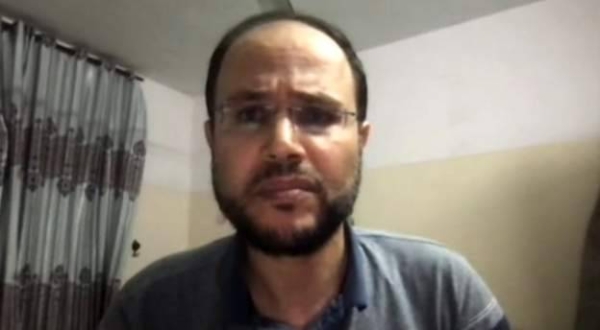
Alareer, one of 32 Palestinian poets featured, was killed in Gaza this month
Collection of 84 works aims to break ‘near total silence in India’ on attacks by Israel, translator says
NEW DELHI: To break the silence in India on Israel’s violence against Palestinians, Hindi writers have published a new volume featuring works from 32 prominent Palestinian poets, including Mahmoud Darwish and Refaat Alareer.
Once an integral part of India’s foreign policy, support for Palestine has been nearly absent recently.
In the wake of Israel’s attacks on Gaza, which since October have killed at least 21,500 people, demonstrations in India of solidarity with Palestinians have been dispersed and awareness campaigns stifled.
The publication of “Kavita Ka Kaam Aansoo Ponchana Nahi” (It’s Not Poetry’s Job To Wipe Away Tears) — a volume of 84 poems released earlier this week — is an attempt by the authors to create greater awareness of the plight of the Palestinians, not only in the past two months, but over 75 years of Israeli occupation.
Besides Darwish, who gave voice to the Palestinian struggle before his death in 2008, and Alareer, who was killed in Gaza this month, the volume includes works from Taha Muhammad Ali, Kamal Nasser, Fadwa Tuqan, Ahlam Bsharat, Rauda Morcos, Dareen Tatour, Zakaria Mohammad and Hosam Marouf, among others.
Prof. Apoorvanand Jha, who teaches Hindi literature at Delhi University and was one of five writers who translated the text, told Arab News the desire to publish the works “came from the near total silence in India on Israeli violence, killing and genocide of Palestinians.”
Jha said he and the other translators saw a need to rekindle the long-standing Indian tradition of solidarity with the oppressed.
“Many of us grew up with the words of the Palestinian writer Mahmoud Darwish, who has shaped our sensibilities as a great poet. We thought of bringing Palestinian voices closer to Hindi-speaking people,” he said.
“People in Europe, America and other places are coming to the streets almost daily despite threats from the government, but unfortunately we did not see that kind of protest. Campuses are largely silent and that saddened us.”
Purwa Bharadwaj, the book’s editor, saw it as a way to give representation to different poetic voices.
“The attempt was to bring in diverse voices from Palestine,” she said. “The poems are not only lamentation, they are also verses that give hope even at a grim time.”
Publisher Nidheesh Tyagi, who was also one of the translators, said the translations were based on the English versions of the poems to speed up the publishing process.
“There was an urgency to bring out the book,” he said. “The selection of poems was carefully done … the poets in this collection are from different periods and generations.”
The most recent work is Alareer’s “If I Must Die,” a poem he shared on his social media in English just a month before he was killed.
Alareer was a professor of English literature at the Islamic University of Gaza. The poem, which has been widely shared on X and translated into dozens of languages, concludes with the words: “If I must die, let it bring hope, let it be a tale.”
For the Hindi writer Yadvendra, translating Palestinian poetry has become a tale of solidarity.
“Through poems, I want to tell that I am standing with the people of Palestine,” he told Arab News.
“The attempt being made by Israel to destroy the symbols and memories of Palestine, that is disturbing … I feel it’s my social and literary responsibility to bring their feelings to the consciousness of the Hindi audience.”












